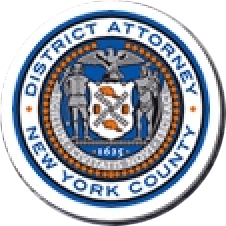What is human trafficking?
State and federal definitions of human trafficking include two types of trafficking: sex and labor. Sex and labor trafficking include forced labor, sexual exploitation, and other forms of servitude. Trafficked individuals are often physically abused, psychologically coerced, and fearful of reporting their abuse to authorities.
Where does human trafficking occur?
Both sex and labor trafficking occur in our own city and can occur in any neighborhood. Trafficked individuals may live and work among us as domestic servants, restaurant workers, and/or workers in the commercial sex industry (including in massage parlors, strip clubs, escort services, or prostitution).
Who can be victims of human trafficking?
Anyone can be a victim of human trafficking, regardless of citizenship. Trafficked individuals may be of any age and identify with any gender, sexual orientation, race, or ethnicity. In New York City we have seen higher instances of people of color, undocumented immigrants, and runaway youth being trafficked.
How do traffickers maintain control of their victims?
Traffickers often recruit by making false promises, preying on basic survival needs, and/or utilizing various forms of abuse. Once involved, the trafficker employs a variety of tactics to prevent the trafficked individual from leaving.
Common ways traffickers maintain control include:
- Debt bondage or withholding of pay
- Sexual, physical, and emotional abuse
- Isolation from friends and family
- Supplying drugs to make the victim more compliant
- Threats to report victim to immigration authorities
- Withholding identification and immigration documents
How can the Manhattan District Attorney’s Office help?
Our office thoroughly investigates reports of human trafficking and prosecutes offenders. We also provide information and answer questions regarding the criminal justice process, and assist survivors and witnesses with safety planning, advocacy, counseling, and social service referrals, regardless of whether charges are ultimately filed against a reported offender.



